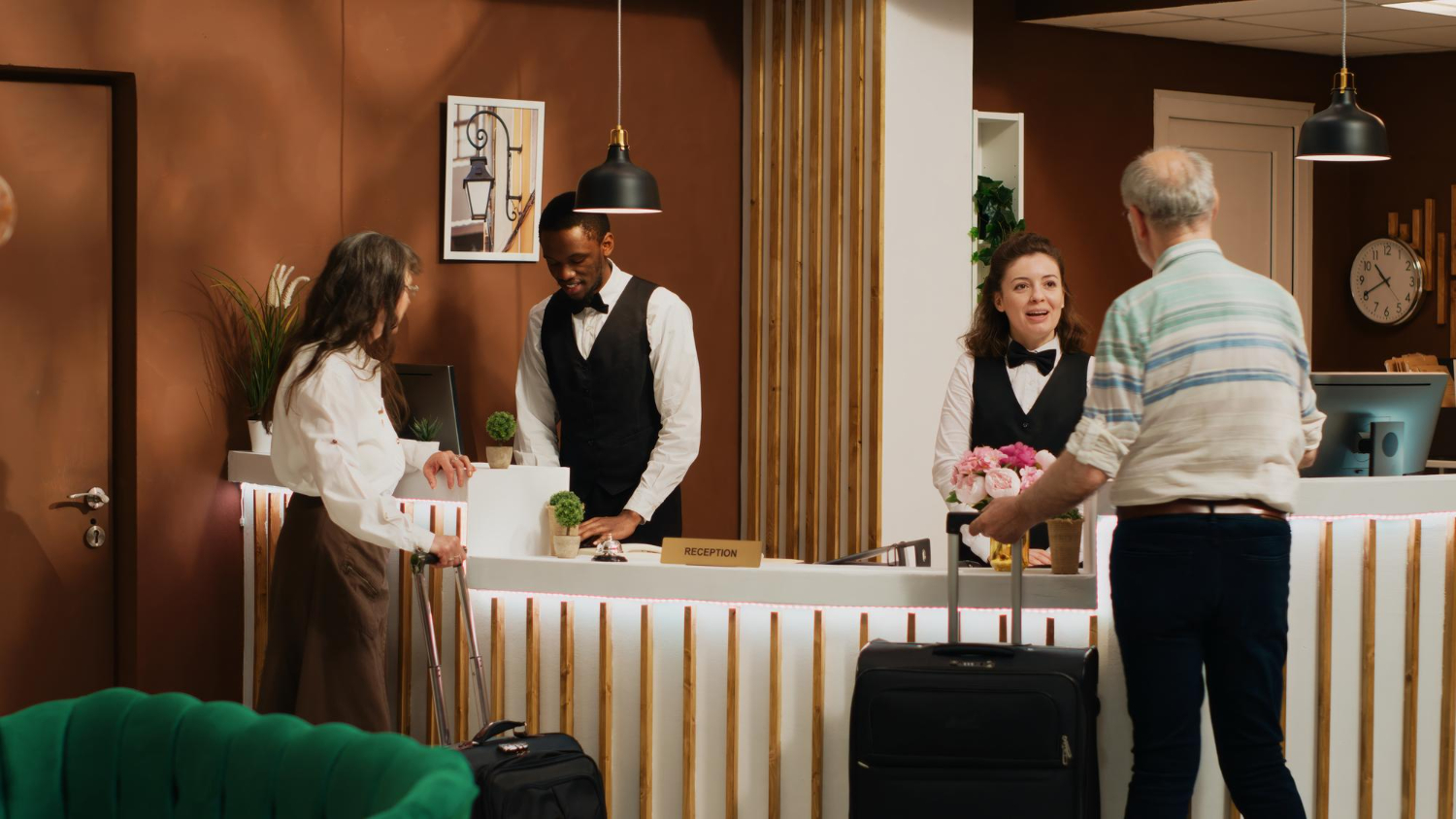The moment a guest crosses the threshold of a hotel, a contract of trust is established. Guests anticipate a safe haven, a space where their rights are respected and protected. Yet, the intricate balance between ensuring guest safety and upholding these rights often becomes a complex dance for hoteliers. Misunderstandings about the extent of guest rights versus hotel policies can lead to disputes, dissatisfaction, and even legal challenges. In this dynamic environment, understanding the rights of hotel guests is paramount for both parties, ensuring a harmonious stay that aligns with legal standards and mutual respect.
What are the Rights of Hotel Guests?
At the core of the hotel guest experience lies a set of fundamental rights, recognized and upheld across the hospitality industry. These rights encompass the expectation of safety, privacy, and equitable treatment during their stay. Safety rights entail protection from physical harm and secure accommodations, ensuring that emergency procedures are in place and that the hotel is compliant with health and safety regulations. Privacy rights safeguard guests from unwarranted intrusions, ensuring that their rooms are their sanctuaries, only to be entered under clearly defined circumstances.
Moreover, the right to nondiscrimination is pivotal, guaranteeing that all guests receive equal access to facilities and services, regardless of race, gender, religion, or nationality. These rights are not just moral guidelines but are often enshrined in local, national, and international laws, governing the operation of hotels and defining the boundaries of guest and hotelier interactions. Understanding these rights is crucial for guests to feel empowered and for hoteliers to navigate the fine line between providing exceptional service and respecting individual liberties.
Illegal Activity in Hotel Rooms
One of the more challenging aspects of hotel operations involves dealing with suspected or confirmed illegal activity within hotel premises. The right of a hotel to intervene when illegal activities are suspected is counterbalanced by the guest’s rights to privacy and due process. Hotels have the authority, and indeed the responsibility, to take action if there is reasonable belief that illegal behaviour is occurring, from drug use to other criminal acts. This may involve notifying law enforcement and cooperating with subsequent investigations while ensuring that actions taken are justifiable and lawful.
The delicate task lies in identifying illegal activity without infringing on privacy rights unnecessarily. Surveillance and security measures must be carefully implemented to monitor public areas while respecting the sanctity of private rooms. Staff training in recognizing signs of illegal activity and responding appropriately is critical, ensuring that any intervention is based on credible evidence and carried out in a manner that minimises the risk of legal backlash. Balancing these considerations requires a nuanced understanding of both the hotel’s rights to safeguard its property and guests, and the individual rights of the guests themselves.
Hotel Guest Privacy Rights
Hotel guest privacy rights are a cornerstone of the hospitality industry’s commitment to guest satisfaction and trust. These rights protect guests from undue intrusion, ensuring that their hotel room, arguably their temporary home, remains private and secure. The principles governing these rights dictate that hotel staff may only enter a guest’s room under specific conditions, such as emergency situations, for housekeeping services at reasonable intervals, or if illegal activity is strongly suspected.
Clear communication of hotel policies regarding room entry is essential, often provided during check-in or within the guest information compendium found in rooms. Advanced electronic systems that record entries and exits can bolster privacy protections, providing a transparent record of when and why a room was accessed. Nonetheless, the execution of these policies must be handled with utmost sensitivity to maintain guest trust. Training for hotel staff emphasises the importance of knocking, announcing their presence, and using access privileges sparingly and respectfully, ensuring that guests feel their privacy is valued and protected throughout their stay.
Understanding the Hotel Room Damage Policy: What Guests Should Know
Hotels implement a hotel room damage policy to protect their property from excessive wear and unexpected damages caused by guests. While normal wear and tear is expected, significant damage—such as broken furniture, stained carpets, or smoking in non-smoking rooms—may result in additional charges. These policies should be clearly communicated at check-in or outlined in the hotel’s terms and conditions. Guests concerned about potential disputes should document the room’s condition upon arrival and report any pre-existing issues to the front desk. Understanding a hotel’s damage policy ensures transparency and helps avoid unexpected charges at checkout.
Can a Hotel Keep Your Belongings?
The question of whether a hotel can keep a guest’s belongings touches on the intricate interplay between hotel policies, guest rights, and legal obligations. Generally, hotels may have policies in place allowing them to hold onto guest belongings under specific conditions, such as for unpaid bills or if items are left behind after checkout. However, these policies must align with local and state laws, which often provide guidelines on how hotels should handle abandoned property and the process for notifying guests.
For instance, if a guest fails to settle their bill, the hotel might retain the guest’s belongings as collateral until payment is received. The legal grounding for such actions typically requires the hotel to make reasonable efforts to contact the guest and resolve the payment issue before any further steps are taken. Similarly, for items left behind, hotels usually have a lost and found policy, holding items for a certain period while attempting to return them to their rightful owner.
Navigating these scenarios requires hotels to act judiciously, balancing the need to enforce policies with the imperative to treat guests fairly and respectfully. Proper documentation of policies and clear communication at check-in can help mitigate misunderstandings and ensure guests are aware of the procedures regarding their belongings.
Understanding Contractual Rights and Obligations

The relationship between a hotel and its guests is fundamentally contractual, initiated the moment a booking is made. This contract encompasses various rights and obligations for both parties, outlined in the hotel’s terms and conditions. Guests are entitled to the services promised at the time of booking, including a safe, clean room and access to advertised amenities. Conversely, guests are obligated to adhere to hotel policies, pay for services rendered, and respect the property and other guests.
Understanding these contractual nuances is crucial for both guests and hoteliers. It clarifies expectations and provides a legal basis for addressing any disputes that may arise. For example, if a guest feels that the services provided do not match what was advertised, they have the right to raise this issue with the hotel management based on the contractual agreement made at booking.
Hotels should ensure that their terms and conditions are transparent, easily accessible, and communicated effectively to guests. This transparency not only aids in preventing disputes but also ensures that both parties are aware of their rights and obligations, contributing to a smoother guest experience.
Navigating Disputes with Hotel Management
Disputes between guests and hotel management are inevitable in the hospitality industry, ranging from issues related to billing, service quality, or policy enforcement. The key to effectively navigating these disputes lies in having clear, accessible channels for guests to voice their concerns and for hotel management to respond promptly and constructively.
A well-defined complaint resolution process benefits both parties, allowing for quick identification and addressing of issues before they escalate. Guests should feel empowered to bring their concerns to the attention of hotel staff, confident in the knowledge that they will be taken seriously and addressed in a timely manner. On the hotel’s side, training staff in conflict resolution and customer service excellence ensures they are equipped to handle complaints professionally, maintaining the hotel’s reputation for quality service and guest satisfaction.
Effective dispute resolution also involves documentation of complaints and their outcomes, providing valuable insights for hotel management to improve services and prevent future issues. By fostering an environment where guest concerns are acknowledged and addressed respectfully, hotels can enhance guest satisfaction and loyalty, turning potential negative experiences into opportunities for positive engagement and feedback.
The Role of Consumer Protection Laws
Consumer protection laws play a pivotal role in safeguarding the rights of hotel guests, offering a legal shield against unfair practices and ensuring a level playing field. These regulations cover a broad spectrum, from ensuring truthful advertising and transparent pricing to the right to privacy and security. They provide a recourse for guests in instances of service non-compliance or when their consumer rights have been infringed upon.
For hoteliers, adherence to these laws is not just about legal compliance but about building trust and loyalty among guests. It involves clear communication of policies, transparent billing practices, and the respectful handling of guest information. By aligning operations with these laws, hotels reinforce their commitment to guest welfare and service integrity.
Staying Informed about Your Rights as a Hotel Guest
For guests, understanding their rights is the first step in navigating the hotel experience with confidence. Staying informed means not only being aware of the rights afforded by consumer protection laws but also understanding the hotel’s policies and the contractual agreement entered into at booking. Guests should take the initiative to read through terms and conditions, ask questions if clarifications are needed, and be aware of the procedures for addressing grievances.
Resources such as government websites, consumer advocacy groups, and travel forums can be invaluable in offering guidance and insights into guest rights and how to advocate for oneself effectively. By being informed, guests can better navigate their interactions with hotel management, ensuring a more enjoyable and respectful stay.
Conclusion
Exploring the rights of hotel guests reveals a complex but crucial aspect of the hospitality experience. Whether it’s understanding the legal nuances of guest privacy, the conditions under which belongings may be retained, or navigating disputes, the foundation rests on a mutual respect for rights and obligations. Hotels, in striving to create welcoming and safe environments, must navigate these waters with care, ensuring that policies and practices not only comply with laws but also enhance the guest experience.
For guests, being informed and understanding their rights empowers them to make informed decisions, advocate for themselves when necessary, and contribute to a positive and respectful hotel environment. As the hospitality industry continues to evolve, so too will the dialogue around guest rights and hotel responsibilities, underscoring the importance of ongoing education and communication.
Take the next step in your travel experience by familiarising yourself with your rights as a guest and the responsibilities of hotels. Together, guests and hoteliers can ensure that every stay is marked by excellence, respect, and mutual understanding, reinforcing the timeless value of hospitality.























